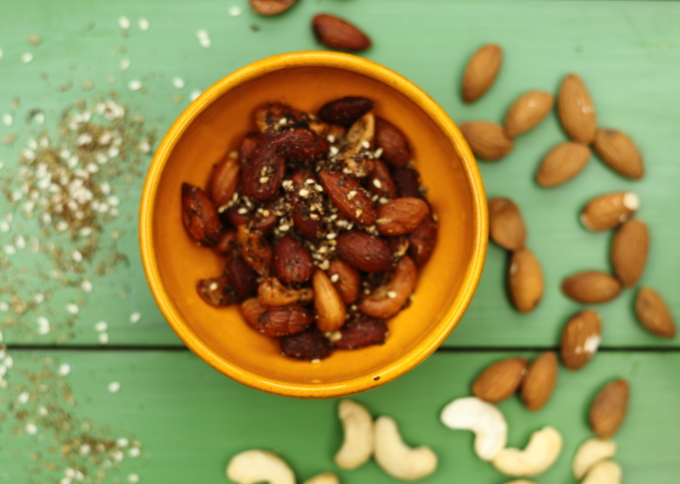We know exercise is good and that any exercise is better than none. But are we being misled by Government guidelines with their constant references to moderation?
In Britain the National Health Service advises us to do “150 minutes of moderate aerobic activity such as cycling or brisk walking every week.”
But Swedish research published in Neurology last week found that women with high physical fitness at middle age were 90% less likely to develop dementia than women who were moderately fit. Not only that, but when a few of the highly fit women developed dementia, it was eleven years later than the moderately fit women.
This is a small but interesting study. As one might expect, the moderately fit women had an advantage over the unfit women. But not by a huge amount. The study ran for 44 years, by which point almost 25% of the women had dementia. Of these, 5% came from the high fitness cohort, 25% from the moderate fitness cohort and 32% from the low fitness cohort.
What’s optimistic about this study is its suggestion that we can improve our cardiovascular fitness in middle age sufficiently to delay or even prevent dementia. In other words it’s not too late to start exercising. Read the full report at http://n.neurology.org/content/neurology/early/2018/03/14/WNL.0000000000005290.full.pdf
So is it the survival of the fittest? And should we be doing more than walking briskly round the park once a day, five times a week?
Unsurprisingly our answer is a resounding YES! If you can, that is. Why? Because this study is another in a long line linking vigorous exercise with a longer, healthier life (read about another study we covered here).
In The Telomere Effect, authors Blackburn and Epel, echo this: “Those that increase their aerobic fitness the most have the greatest increase in telomerase activity.” Telomerase is the enzyme that helps us renew and replace our cells, vital for ageing well.
But vigorous exercise is hard. We know that. We’ve both struggled more with squeezing vigorous exercise into our ridiculously busy lives, than almost anything else. But when it comes to genuinely vigorous, three things have come to my rescue:
- High Intensity Interval Training: I’ve been able to improve my fitness levels in efficient 10-15 minute sessions. No more pounding on a treadmill for 45 minutes. We wrote about HIIT here.
- Audiobooks: Listening to books and podcasts staves off the inevitable boredom of hard-core exercise (recent research found that people listening to music or books sustained their exercise programmes for much longer)
- A rowing machine!
So what’s the big deal with rowing? Well, like HIIT, it’s massively efficient. And if you take a HIIT approach to rowing (one minute of fast rowing followed by 1-2 minutes of slower rowing), it’s even more efficient.
According to Peta Bee and Sarah Schenker in The Ageless Body, rowing is “second to none in improving cardiovascular fitness.” Ask any personal trainer and they’ll tell you rowing is the most effective form of exercise for a full body workout. Studies comparing rowing with cycling support this: rowing is more effective at improving fitness.
This is because rowing works all the major muscle groups, including the calves, quads, hamstrings, glutes, abs, obliques, pecs, biceps, triceps, deltoids, core – and the lower and middle back. That means less time doing strength training, a subject we’ll be covering very soon.
Ideally, I’d be rowing on a river, which would provide the additional benefits of vitamin D and social interaction. But I’m looking for maximum efficiency and convenience. That means indoor rowing. You can pick up second-hand rowing machines relatively cheaply or buy a new one for anything upwards of £150.
To get the best results, it’s really important you use the right technique. Ask a personal trainer to help you get started, or watch a rowing tutorial on YouTube.
This weekend is the annual Boat Race on London’s River Thames. No doubt many of these rowers will be seeing in the next century – alive, kicking and dementia-free.
Still wondering why we’re encouraged only to be moderately fit? Me too. Yes, moderate is great – and we’re big fans of table tennis, dancing and walking. But in middle-age vigorous may be even better.
This week’s recipe is the perfect snack, before or after your vigorous workout. It also makes a great pre-dinner nibble (who needs crisps?). I make a batch for the family every week and keep it in the fridge. Use any nuts you like but this is our favourite combination. I buy ready mixed za’tar (a middle-eastern herb & spice mix of sesame seeds, oregano, marjoram, cumin and sumac) but feel free to make your own.
ZA’TAR NUTS
- 100g cashew nuts
- 100g walnuts
- 100g almonds
- 1.5 tbsp olive oil
- 5 tsp za’tar mix
- 1 tsp good quality salt (I like pink Himalayan mountain salt for this recipe)
Turn the oven to 180 C. Mix the nuts, oil, za’tar and salt in a bowl, then spread out in a roasting tin.
Bake for 12 minutes. They should be a pale golden-brown. Leave to cool.
Annabel



This post is quite informative. The recipe is just amazing, I will definitely give it a try. I had no idea that Telomerase is an enzyme! I am glad you shared all this info at one place. 🙂
Thanks for your comment and appreciation. Do try the nuts – they are delicious and we live off them. Although I have a new nut recipe coming soon! Annabel